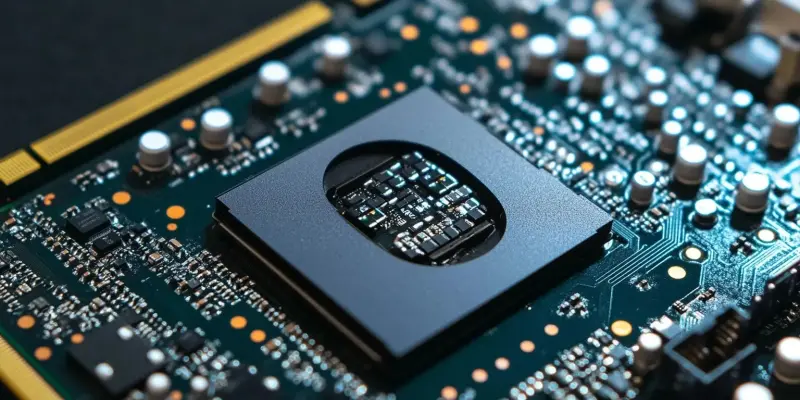In February 2025, AMD’s domination in the CPU market is unmistakable, significantly outperforming long-time competitor Intel. This is driven by exceptional sales of their Ryzen processors, particularly the AMD Ryzen 7 9800X3D, which has sold over 8,000 units and held the top-seller position on Amazon. AMD shipped nearly 50,000 units in the month, thanks to the impressive performance of their X3D processors. The strength of the Ryzen 5000, 7000, and 9000 series has bolstered AMD’s dominance, allowing the brand to capture a whopping 84.18% of the CPU market share, while Intel has a comparatively meager 15.82%.
AMD’s Performance and Market Share
AMD’s revenue during this period underscores their market dominance, achieving 86.03% of the total revenue within the CPU segment. This can be attributed partly to AMD’s higher average selling price of $290.71, in contrast to Intel’s $251.18. The significance of this revenue gap not only highlights AMD’s commanding position but reflects their strategic success in garnering consumer trust and preference. The Ryzen 9 9950X3D, featuring 16 cores and 32 threads, recently dethroned the Ryzen 7 9800X3D as the fastest gaming and productivity CPU available. This processor’s robust performance solidified AMD’s stronghold among high-performance users. Moreover, AMD’s budget-friendly offerings, like the Ryzen 5 5500, perform remarkably well, ensuring the brand’s appeal across different market segments, from budget-conscious consumers to gaming enthusiasts and productivity users alike.
Intel’s Struggles to Compete
Despite Intel’s efforts to remain relevant through their 13th and 14th generation processors and the introduction of Arrow Lake-S processors, they have struggled to match AMD’s superior performance. Intel’s Core Ultra 200S processors barely make a dent in the best-seller lists, with only the Core Ultra 7 265KF seeing minimal significant sales of just 200 units from the Arrow Lake family. Intel’s moderate success with processors like the Core i9 14900K and Core i7 12700K fails to close the substantial market gap. This highlights the effectiveness of AMD’s strategy and innovation, making it increasingly challenging for Intel to regain a competitive edge in the market.
Future Outlook for AMD and Intel
By February 2025, AMD’s prominence in the CPU market is undeniable, vastly outpacing long-standing rival Intel. This surge is fueled by exceptional sales of their Ryzen processors, notably the AMD Ryzen 7 9800X3D, topping Amazon’s best-seller list with over 8,000 units sold. The company’s success continued with nearly 50,000 units shipped that month, owed largely to the stellar performance of their X3D lineup. The potent Ryzen 5000, 7000, and 9000 series have fortified AMD’s market stronghold, enabling the company to seize an impressive 84.18% market share. In stark contrast, Intel holds onto a modest 15.82%, highlighting a notable shift in consumer preference. AMD’s impressive performance metrics and a diversified lineup of powerful processors have catapulted the company into a leadership position within the industry. This remarkable achievement underscores AMD’s strategic prowess and the strong appeal of their high-performance CPUs, marking a significant chapter in the ongoing rivalry between AMD and Intel.

